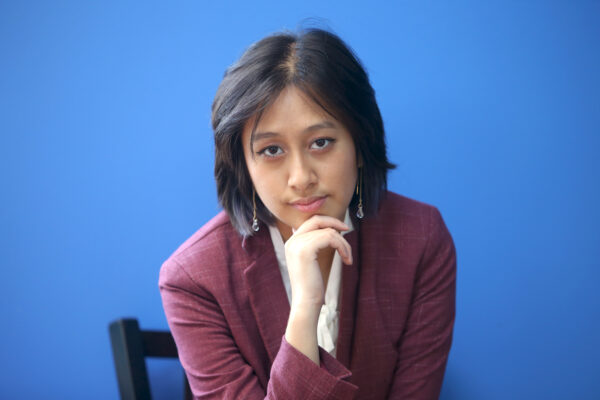Sharing my food and culture is as instinctual to me as breathing. Once in high school, I baked a traditional Filipino dessert, a cassava cake, to represent Women’s Rights in the Philippines for a class. After giving my presentation, I noticed that my classmates wouldn’t look at me and were avoiding cutting themselves a slice of cake.
In an attempt to share a part of myself, I realized that my identity made others feel uncomfortable. I looked down at my shoes and couldn’t help but feel embarrassed and alone, as if there was something wrong with me. This wasn’t the first time something similar happened, and it wouldn’t be the last. Moving forward, I discarded and dampened my cultural instincts. I became hesitant to offer my food, hesitant to speak words like “Lola” (grandma) or “Lolo” (grandpa), and hesitant to be vulnerable with others in fear of rejection.
My experience illustrates the short and long-term effects of people’s choices to not interact with identity. This could become the reality for many K-12 students if Minnesota does not amend their “Opt-Out” law (Sec. 120B.20).
As it is currently written, the law allows parents to remove their children from lesson plans that represent certain protected classes (race, religion, sexuality, gender, etc.), and choose alternative instruction. Parents have begun to abuse this broad opt-out law and remove their children from the classroom during lessons that expose them to ideas and cultures different from their own.
Instead of choosing which cake is better, why can’t we celebrate all the cakes equally?
Imagine how excited a queer high school student would be to learn their class is reading a book with a queer character; how excited they would be to see themselves represented in a book. But then, as soon as the book is introduced, the student’s friends and classmates leave the room because their parents chose to exempt them from all instructional materials containing queer identities. If you were that student, how would you feel?
And this doesn’t just happen once – it occurs repeatedly, with every material that contains the identity of that queer students, to the point where they feel ostracized from the rest of the class.
My wish, and the ACLU-MN’s goal, is to protect kids from ever having this experience, which is why the ACLU is looking into potential fixes for this issue.
People have the choice to “opt-out” of my identity, and while I have no choice to “opt-out” of my own identity, I wouldn’t even if it was an option. Having a marginalized identity brings me more empathy for others and a deeper connection with individuals who have a different background from me. Even if I do not share an identity or can’t directly relate to a particular experience, I am acutely aware of the effects of ignorance and meet others’ vulnerability by being honest about the limits of my knowledge and asking deeper questions to truly understand the individual. This is a practice more people should be accustomed to doing, which is why it is exceedingly vital to preserve diversity in education.
An exchange of cultural understanding is an exchange of vulnerability and proves how an open mind can forge bridges across gorges of difference.
There are numerous actions anyone can take to help change opt-out law and policies: Attend your local school board meetings and voice your concerns, ask your state representatives to amend the opt-out law, push to amend local opt-out policies, and elect school board members that are pro-diversity in education.
The current “opt-out” policy, as it stands, is one of many harmful barriers that block us from building a more compassionate world. We must unite to rectify this mistake.


